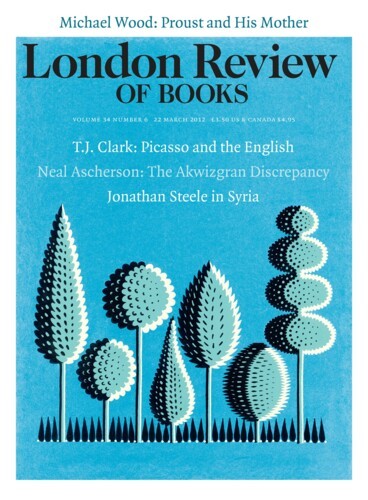Imagine a sheriff offering the head of a criminal gang the following deal: ‘If you agree to stop stealing from your neighbours for three months, I’ll give you cutting edge weaponry and block any efforts by other law enforcement authorities to restrain your criminal activities.’ Sounds absurd? Then how about this: in return for a three-month freeze of illegal construction in the occupied West Bank (but not in occupied East Jerusalem, where it may continue), Barack Obama has promised to deliver 20 F-35 fighter jets to Israel, a deal worth $3 billion.
Neve Gordon
Neve Gordon teaches at the School of Law at Queen Mary University of London. He is the author, with Nicola Perugini, of Human Shields: A History of People in the Line of Fire.
Elie Wiesel is not known for his sympathy towards the Palestinian cause for self-determination. He was recently made the chairman of the board of the Elad Association, also known as the Ir David Foundation, an organisation that has been actively erasing the Palestinians’ cultural heritage and facilitating the confinement of Palestinian residents of East Jerusalem. In 2002, the Israel Nature and Parks Authority hired Elad to run the City of David national park, in the densely populated Palestinian neighbourhood of Silwan. Elad has spent millions of dollars trying (unsuccessfully) to demonstrate King David's presence in that area.
In the Negev
Neve Gordon, 22 March 2012
At least seventy thousand Bedouin in the Negev live in villages currently classed as ‘unrecognised’ by the Israeli government. This means that it’s forbidden to connect the houses to the electricity grid or the water and sewage systems. Construction regulations are harshly enforced, and last year about a thousand Bedouin homes and animal pens – usually referred to by...
My friend’s wife was accepted to a PhD program at McGill University in Montreal. They decided to move to Canada with their two children at about the same time that I was offered a fellowship at Princeton and decided to move with my family to New Jersey for a year. Hoping to rent out our apartments while we're away, we both posted ads on the most popular website in Israel. I received about five calls a day and found a tenant within a couple of weeks. My friend received only three calls in four weeks, and none of the people who called came to look at his flat. A few days ago he removed his ad from the website and posted a new one, only this time he changed his name from Hussein to Rami. Rami is an ethnically indeterminate name – it can be either Jewish or Palestinian – but there are no Jews called Hussein.
Last year I gave the Israeli artist Amir Nave an old Hebrew copy of Immanuel Kant’s Perpetual Peace, which I teach every so often in my Introduction to Political Theory class. He took the book, flipped through it, ripped out the title page, turned it upside down, signed it and returned it to me. Nave, an Arab Jew of Iraqi descent, didn't say anything, but the gesture was eloquent enough: we are living in an era of perpetual war, and peace emerges, if at all, in the interregnum. Nave’s children go to the same school as mine. It’s called Hagar, after the biblical figure who wandered between different peoples and cultures in the desert not far from where I live. Hagar was founded by a group of Jewish and Palestinian parents who wanted to create a shared space for their children. It’s the only non-segregated school in the Negev region, which is home to about 700,000 Israelis, more than a quarter of whom are Palestinian Bedouin.
Read anywhere with the London Review of Books app, available now from the App Store for Apple devices, Google Play for Android devices and Amazon for your Kindle Fire.
Sign up to our newsletter
For highlights from the latest issue, our archive and the blog, as well as news, events and exclusive promotions.


